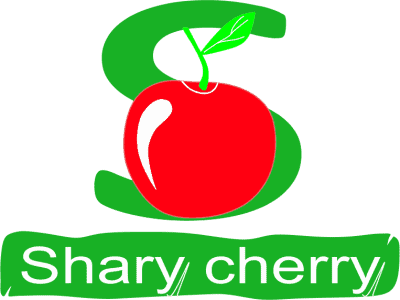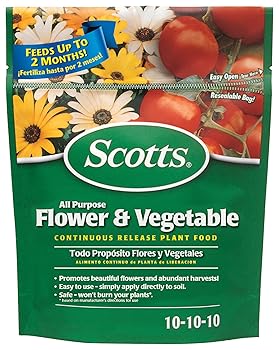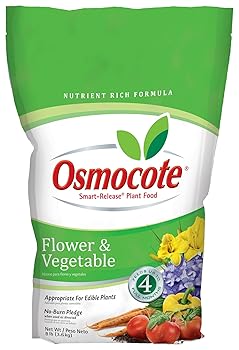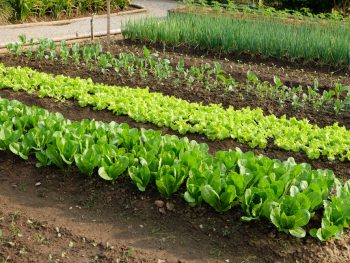 When it comes to finding the right fertilizer for cultivating your vegetable garden, there are plenty of aspects to take into consideration. From NPK ratios to plant food to even the different types of fertilizers, you might find the entire process extremely daunting, especially if you’re a beginner to gardening.
When it comes to finding the right fertilizer for cultivating your vegetable garden, there are plenty of aspects to take into consideration. From NPK ratios to plant food to even the different types of fertilizers, you might find the entire process extremely daunting, especially if you’re a beginner to gardening.
However, there’s no need to worry: in this article, we’ll show you how to find the best fertilizer for your vegetable garden, as well as give you some of our top suggestions that you might want to invest in. Be prepared for your backyard to be teaming with an abundance of fresh, ripe vegetables!
Comparison of Top 5 Best Fertilizers for Your Vegetable Garden 2021
**Below, you’ll find more detailed reviews but you can also click links above to see current prices and read customer’s reviews on Amazon.
Reviews of the Best Vegetable Fertilizers
Miracle-Gro 1001233 All Purpose Plant Food
Good for using on not only vegetables, but also on flowers, trees, and other plants, Miracle-Gro’s all-purpose plant food offers a versatile range for growing just about anything you can think of. The brand especially prides itself on growing bigger, healthier products than other companies out there, so why not give it a try?
Pros
- Miracle-Gro’s plant food is versatile to use for growing many different vegetables, as well as flowers, trees, and even houseplants.
- It does a good job of not burning the plants from being overly concentrated, thereby having just the right NPK proportions in its feed.
- The vegetables and plants grow rapidly within ten days, so it results in abundance over a short period of time.
Cons
- It’s not as dissolvable compared with other water-soluble plant foods out there, as it requires you to shake and stir it thoroughly before use.
Jobe’s 09526 Organic All Purpose Granular Fertilizer
Made in the United States, Jobe’s organic granular fertilizer prides itself for being domestically-manufactured to ensure its upmost quality of service for gardening and growing good crops for your home. It’s also fast-acting, caused by tons of microorganisms in its feed to break down organic material quickly to have your plants grow quickly and efficiently for the next harvest.
Pros
- Jobe’s organic granular fertilizer contains what’s known as “BioZome,” a mixture of microorganisms that can aggressively break down material to ensure the healthy growth of plants and vegetables.
- It can be bought in bulk, which can be useful for large-scale gardening projects, i.e. you want to plant large acres of vegetable crops.
- Plants and vegetables grow very quickly, as soon as three days after planting, so as to yield more crops sooner than later.
Cons
- This particular fertilizer tends to be smellier than other brands out there, so it can be distracting to the overall gardening experience.
Scotts All Purpose Vegetable Continuous Release Fertilizer
With a two-month feed and a safe, non-burn feature, Scott’s all-purpose fertilizer is a good product to consider for growing your flowers and vegetables all-year round. Even better, it’s easy to use; all you need to do is apply it directly to the soil and let the magic happen!
Pros
- Scott’s all-purpose plant food requires just a small amount in order to have lasting results; less than a quarter-size dollop should do the trick.
- It has a stable, even texture that can help your plants and vegetables grow well without too many problems.
- This brand has a slow-release function, which means that you only need to fertilize them every few months to keep their growth going well and efficiently.
Cons
- It might not be the best for use on potted plants, as adding too much to the soil inside can risk burning them due to high concentration of fertilizer.
Espoma GT8 8-Pound Garden-Tone Plant Food
This special plant food from Espoma is not only made from 15 different organic ingredients, but also is environmentally safe, so you won’t have to worry about leaching toxins into the soil, let alone your precious plants and vegetables.
Pros
- Espoma’s plant food is organic-based, meaning that it uses natural ingredients to enhance crop growth while also decreasing the number of synthetic components used to grow them.
- This product enhances soil structure, thereby making it more textured and likely to grow better and riper.
- It’s environmentally-friendly with its organic components, so not as much toxins in the soil.
Cons
- It might require you to mix with other plant food products, as using it by itself might not yield the best NPK ratios depending on what you plan to grow.
Osmocote Vegetable Smart-Release Fertilizer
(Editor’s Choice)
Osmocote’s fertilizer offers a lot for such a simple produce: besides providing a balance of top growth and root growth, it also can feed up to 40 square feet per pound of its product. It’s good for both annual and perennial plants and vegetables and has an all-around 14-14-14 NPK ratio for a balanced garden.
Pros
- It contains a balanced formula in order to ensure that the plant is all-around healthy, from the top of the leaves to the bottom of its roots.
- Osmocote’s plant food is versatile in that it can be used for both perennial and annual plants, so it’s not picky to grow anything.
- It covers a lot of growth space, as much as up to 40 square feet per pound of feed.
Cons
- Especially if you need more phosphorus for enhancing root development, Osmocote’s plant food might not come with a high ratio of it, thus requiring you to fortify it yourself.
What to Look for When Buying Good Fertilizer
NPK Ratios
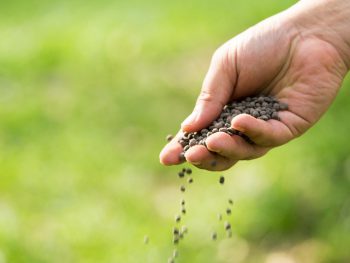
- Nitrogen. Generally speaking, nitrogen is useful for contributing to overall good health of the plant or vegetable; it supports its growth, as well as fosters leaf production. It also brings a bright, natural green to the garden, which signals that it’s health and in solid condition.
- Phosphorus. On the other hand, phosphorus aids more on the development of the plant as a whole, rather than on aesthetics. It’s used for growing roots, as well as cultivating the bulbs of flowers and the edible flesh from fruits and vegetables.
- Potassium. This particular element, potassium, is used for enhancing hardiness within the plant itself; that said, it’s used to help the plant or vegetable resist drought and harsh, cold weather. Just like phosphorus, potassium also assists in root development.
When it comes down to the right ratios among these nutrients, it’ll depend on what kind of vegetable you plan to grow. In general, aim for ratios exactly or close to each other, such as 10-10-10 or 8-10-10. For more information, you can learn it here.
Other Organic Elements
Besides macronutrients such as those in the NPK ratio, there are also other nutrients to consider for the plant or vegetable. Although needed in only small amounts, they still can affect the overall growth in the end. Here are some of them:
- Calcium. It’s used to neutralize not-so-good substances in the soil, as well as enhances its structure.
- Magnesium. It is part of chlorophyll, which is used to gather sunlight and help plants and vegetables grow.
- Sulfur. This particular element is involved in protein product, which assists in the plant’s shape development.
Type of Fertilizer
Aside from organic fertilizers, there are two main types that are commonly used to grow plants and/or vegetables. We list them down below:
- Granular. While more suited for cultivating lawns, granular fertilizers nevertheless last longer and are generally easier to work with. It comes in two types: quick-release, which releases nitrogen faster, and slow-release, which take more time to let out the nitrogen and overall last longer.
- Liquid (or water soluble). This particular fertilizer can be dissolved in water, with which plants can easily absorb through their roots. It works well for many plants and vegetables, and can be used in both outdoor or potted plants.
- Sulfur. This particular element is involved in protein product, which assists in the plant’s shape development.
Plant Food
This might sound like another fancy term for “fertilizer,” but in any case, plant foods are also more specific in that they offer some extra features, whether more nutrients or weed control, to help your plant grow as smoothly as possible. They are divided into two categories, which are described below:
- Organic.Touted as “more natural” than synthetic fertilizers, the organic version prides itself in cultivating plants and vegetables in a more environmentally-friendly way, as well, as promoting slow, steady growth for better development. That said, materials such as blood meal, fish emulsion, and compost are included in this type of plant food, and it might not be a bad idea to try some of them out.
- Synthetic. As the name suggests, synthetic plant food is created chemically and is specifically engineered to enhance plant growth. Water-soluble and controlled-released types are part of this category, and they’re good for quick growth and delaying it until the time is right, respectively.
While there are benefits to synthetic plant foods, it also creates short lifespans of its crops, as well as causes burning and leaching in the plants, which over time can damage them. For more information on plant foods, take a look at this article.
Our Top Pick
Although a difficult choice in that all of these fertilizer products came with their pros and cons, the winner of this round-up goes to Osmocote Vegetable Smart-Release Fertilizer.
It offered the most-balanced NPK ratio of 14-14-14, as well as coverage of both annual and perennial vegetables, which makes growing anything crop imaginable a reality. It can also be used for both commercial and personal gardening and altogether is an all-around vegetable fertilizer to have.
